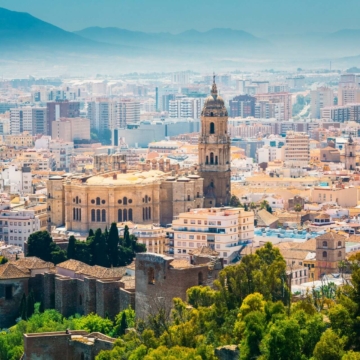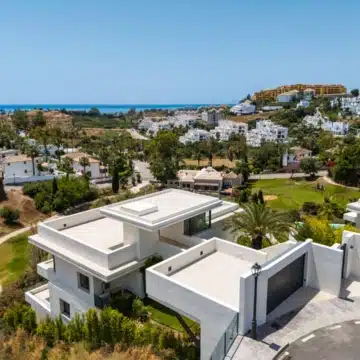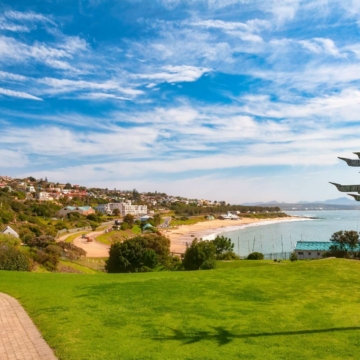looking to buy a home?
Submit this Form and Benefit from our 25 Years' Experience & Strong Local Network.Spain remains one of the most attractive countries in Europe for foreign buyers, especially in Costa del Sol, where the lifestyle, climate, and international connections make it a perfect destination. However, owning a property in Spain involves more than just choosing a villa or apartment. Buyers must be aware of the financial and legal requirements to avoid delays, unexpected costs, or compliance issues.
Below, we outline the essentials you need to know before buying a home in Spain.
Getting Your NIE Number
Every foreign buyer needs an NIE (Número de Identidad de Extranjero). This identification and tax number is required to:
- Sign the property deeds at the notary’s
- Open a Spanish bank account
- Pay property taxes and utilities
- Buy or sell property, cars, or other assets
Issued by the Spanish National Police, NIE can be applied for in Spain or at a Spanish consulate abroad, but most buyers appoint their lawyer to obtain it on their behalf.
To know how to apply for it, read our step-by-step NIE guide.
Residency and Visa Options
Living in Spain depends on where you’re from:
- EU/EEA citizens: No visa is required to live or buy property in Spain.
- Non-EU citizens: If you’re staying longer than 90 days, then getting a VISA or residence permit is a must.
The Golden Visa Update
Until recently, Spain offered the Golden Visa, granting residency in exchange for a real estate investment of €500,000 or more. This program officially ended on April 3, 2025, after more than a decade. The government decided to stop it due to rising property prices and concerns over housing affordability in high-demand areas like Madrid, Barcelona, Malaga, Marbella and the Balearics.
Current Visa Options
- Non-Lucrative Visa: For retirees or those with passive income who wish to live in Spain without working.
- Digital Nomad Visa: This allows remote workers and freelancers to live in Spain while working for clients or companies outside the country. Applicants must prove sufficient income (usually around €2,500+ per month for individuals), health insurance, and a clean criminal record. It is valid for one year initially and can be extended for up to five years.
Financial Requirements and Costs of Purchase
When buying property in Spain, there are several transaction costs that you have to account for. These typically add 10 to 15% on top of the agreed price.
Key Costs
- Property Transfer Tax (ITP) – 6–11% depending on the region, for resale homes.
- VAT (IVA) and Stamp Duty (AJD) – 10% VAT + 1–1.5% stamp duty on new-build properties.
- Notary and Land Registry Fees – Around 1–2% combined.
- Legal Fees – Around 1% of the property price, depending on the lawyer.
- Mortgage Costs – Valuation fees, arrangement fees, and possible stamp duty.
Having a clear financial plan is essential, as these costs must be covered before completion at the notary.
Key Taxes
Spending over 183 days a year in Spain makes you a tax resident, meaning you have to pay taxes on your global income and assets, not just Spanish property. Key taxes that apply include:
- Income Tax (IRPF): Paid on global income if resident; non-residents only pay on Spanish income (e.g. rental income).
- Wealth Tax: Applies to assets above a certain value, although some regions (like Madrid and Andalucia) offer some exemptions.
- IBI (Impuesto sobre Bienes Inmuebles): Local property tax, just like council tax, based on cadastral value, which can be paid annually or in two instalments
- Basura (Refuse Collection Tax) – Local waste tax.
A good tax advisor is essential to plan and avoid unexpected costs.
Also, you can read our detailed guide about the taxes and fees involved in buying a property in Spain.
Legal Checks and Due Diligence
Before buying, your lawyer should carry out a comprehensive legal review of the property, which includes steps like:
- Making sure the seller is the legal owner of the property
- Ensuring there are no outstanding debts, mortgages, or charges
- Checking zoning and planning permissions
- Verifying licenses for new builds or renovations
- Reviewing community rules if the property is part of an owners’ association
Without these legal checks and due diligence, you are likely to come across some surprises when buying any property. So, having a legal representation is a must.
Ownership Structures
Foreign buyers can purchase in their name, jointly with a partner, or through a company. The right option depends on your:
- Long-term plans (holiday home, rental, permanent residence)
- Tax situation in Spain and your home country
- Inheritance planning needs
Professional advice is key here, as the structure chosen will affect tax liabilities now and in the future. To find out more, read our guide about how to structure your Spanish property.
Community Fees and Meetings
If your property is within a residential community, you have to pay community fees as well for services and maintenance. Also, each year, there’s a general meeting of the association to approve budgets, elect representatives, and vote on community issues such as maintenance, security, or upgrades.
If you’re not living in Spain full-time, you can appoint your lawyer or agent to represent you and vote on your behalf, ensuring your interests are protected.
Final Thoughts
Buying property in Spain offers huge rewards, but it’s a process that must be handled carefully. From securing your NIE number to budgeting for taxes and legal fees, every step has financial and legal implications.
Working with an experienced estate agent and independent lawyer will ensure your purchase is secure, transparent, and without any complications.
Thinking of buying or moving to Spain? Contact us today for expert advice.










